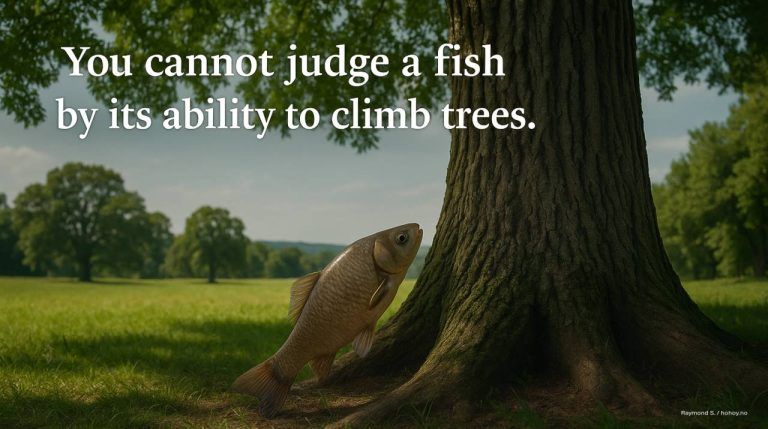Many employees seek more than just a paycheck. They seek meaning, personal growth, professional development, and the chance to master new skills. A work environment that nurtures these needs not only fosters satisfaction but also increases loyalty, engagement, and productivity.
In this article, we take a closer look at why development opportunities and mastery are so crucial, and how you as a leader or employer can facilitate genuine motivation – not just in the short term, but also over the long haul.
Why Are Development Opportunities So Important?
Herzberg’s Two-Factor Theory highlights “recognition” and “development” as central drivers for true motivation.
Deci and Ryan’s Self-Determination Theory shows that competence and mastery are fundamental psychological needs for achieving intrinsic motivation.
Studies from Deloitte and SHRM (Society for Human Resource Management) show that employees who can develop their skills are more satisfied, more loyal, and more productive.
A work environment without development doesn’t just feel like a dead end – it drains our energy, satisfaction, and drive.
What Motivates People to Develop?
No two people are motivated by exactly the same things. I’ve written about this previously in my article on rewards and motivation, where I emphasize the importance of understanding and adapting to the different needs and preferences of your employees. When each person gets what motivates them most, both the individual and the organization win.
1. Professional Growth and Learning
Courses, training, certifications, or the chance to learn new skills make employees feel relevant and competent.
Investing in professional development is not only an investment in each individual employee but also in the company’s future competitiveness.
Personally, I’ve always found that new impulses, like attending a course or a conference, provide a huge boost of energy – it’s like refueling both myself and the ideas I bring back to work.
2. Career Growth and Advancement Opportunities
Being able to see a clear path forward within an organization – toward new roles or greater responsibility – is a major motivational factor for many.
Here, titles often play a bigger role than we might think. I’ve written previously about how a title like “Senior” can mean more to employees than I first realized: it gives a sense of progression and recognition that must be taken seriously.
3. Recognition and Mastery
It’s not just about new opportunities – it’s about being recognized for the effort along the way. When we experience mastery and receive genuine praise, it builds both confidence and motivation.
Feel free to also read my article on how meaningful praise fuels motivation and growth.
Give People Time to Grow
In a hectic workday, it’s easy to measure employees based on quick results. But true development takes time. Especially for recent graduates or those stepping into new roles, it’s essential to allow space to grow, experiment, and learn.
“You cannot judge a fish by its ability to climb trees.”
This quote reminds us not to evaluate people based on skills they haven’t yet had the chance to develop. Expecting immediate mastery is unfair – and can crush motivation before it even has a chance to blossom.
It’s also a crucial reminder in the ongoing discussion about Generation Z in the workforce. Many young workers today are not just seeking a job – they’re seeking meaning, learning, and development. They want to be seen as whole individuals, not just measured by their output from day one.
If we give them (and others) time to grow, rather than expecting everyone to “climb trees” they were never meant to climb, we will achieve better results over time – while also building stronger relationships, greater loyalty, and more sustainable teams.
How to Facilitate Development Opportunities
Based on both research and personal experience, there are several practical actions that truly make a difference:
Facilitate Learning
- Offer courses, conferences, and further education.
- Create internal learning arenas, such as workshops or mentoring programs.
- Acknowledge that learning takes time – don’t expect employees to develop “on their own time.”
Showcase Career Paths
- Clearly communicate the opportunities available for advancement.
- Offer internal promotions where possible.
- Remember: for some, career growth means specialization, not necessarily leadership.
Create Arenas for Mastery
- Provide challenges that match employees’ skill levels and offer room for growth.
- Follow up with specific and genuine praise when mastery is achieved.
- Give employees the freedom to own their projects – creating a sense of pride and ownership.
Flexibility as Part of Development
Development is also about shaping your own workday. As I have previously reflected on in a my article about balancing responsibility, health, and flexibility at work (in norwegian language), the ability to adapt your workday to your own needs is a huge source of both satisfaction and motivation.
For some, flexibility means the freedom to work from home. For others, it’s about having stable routines. Whatever it is, the feeling of control is critical – being able to steer, rather than just being steered, is essential for experiencing true mastery.
And yes, mistakes may happen along the way. But remember: those who do nothing never make mistakes either. It’s better to take initiative and fail occasionally than to have no initiative at all.
Summary
Development opportunities and mastery are not just “nice to have” – they are crucial for retaining talent and building an organization where people thrive and succeed. By investing in learning, showcasing career paths, recognizing contributions, and giving people the freedom to develop on their own terms, we create a work environment that fosters genuine engagement.
Because when people grow, the organization grows too.
What motivates you to grow? How have development opportunities impacted your own job satisfaction? And what do you wish more employers understood about personal and professional growth? Feel free to share your thoughts in the comments – maybe we can inspire each other!





